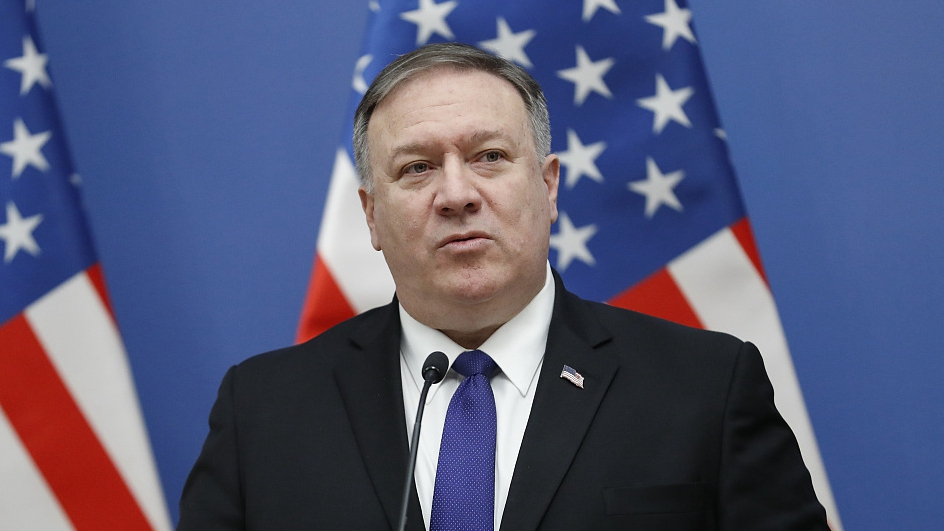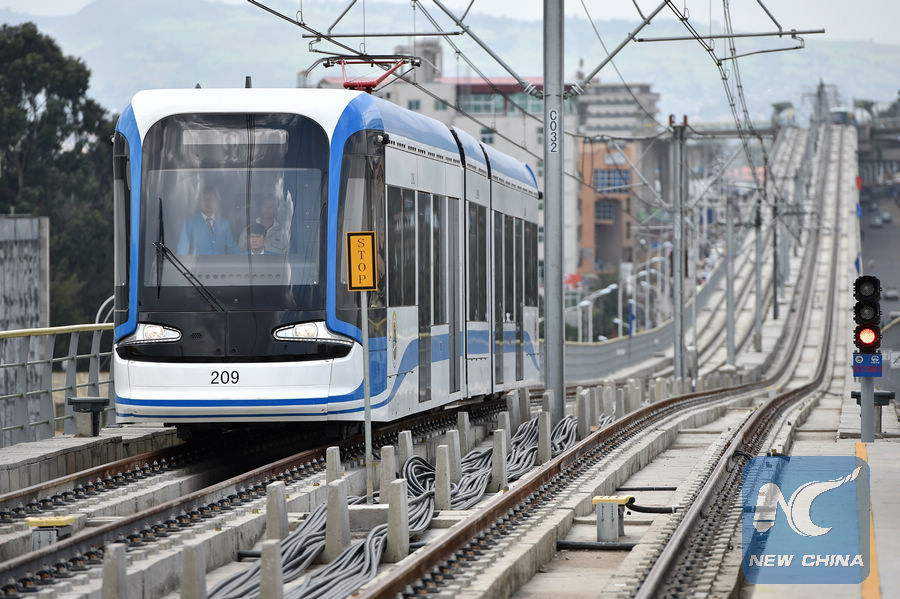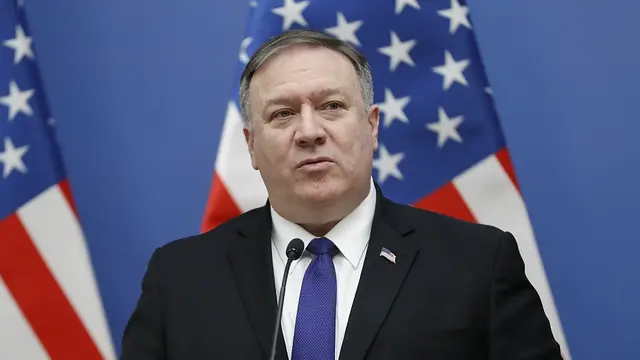
Editor's note: Andrew Korybko is a Moscow-based American political analyst. The article reflects the author's opinion, and not necessarily the views of CGTN.
Secretary of State of the U.S. Mike Pompeo just began his first tour of Africa during his tenure on Saturday, traveling to Senegal prior going to Angola and Ethiopia. This is the first visit to the continent by the U.S.' top diplomat in nearly two years since his predecessor Rex Tillerson's trip in March 2018, showing just how much the Trump Administration has neglected Africa. It's enough to recall the President's derogatory comment about so-called "shithole countries" that he reportedly made in January 2018 to understand his attitude towards developing nations.
Slowly but surely, that seems to be changing, but for the wrong reasons. Pompeo has been very vocal about his country's perception of China as America's main global challenger in an era that he's described as "great power competition," and it was only a matter of time before the U.S. began to regard Africa as a theater of geopolitical rivalry. China is the continent's largest trade partner and indispensable to its development, with many African nations joining its Belt Road Initiative (BRI) in recent years.
The gradual growth of their economies and improvement of their people's living standards as a result will ultimately make African countries better trade partners for all, including the U.S., but America is under the illusion that everything is a zero-sum game. Therefore, instead of celebrating the expansion of Chinese-African economic relations, the U.S. is adamantly against them in principle, though it fails to acknowledge that China is simply fulfilling the developmental role that the U.S. consistently eschewed.
The Trump Administration was too busy waging its "trade war" with China over the past few years and "Making America Great Again" at home to concern itself with other countries' economic needs. That was a short-sighted mistake in hindsight because it reduced the U.S. overall competitiveness in Africa, which Pompeo is actively trying to reclaim through his latest trip. It would be mutually beneficial if the U.S. stepped up its game and finally provided Africa with the assistance that it's needed for decades, though it can't be guaranteed this will happen.

Photo taken on September 20, 2015 shows a train operating on the light rail in Addis Ababa, Ethiopia. /Xinhua Photo
Regrettably, the U.S. has a track record of attaching political strings to its assistance, demanding that its partners undertake political and/or economic "reforms" in order to be eligible for such aid. These required changes are intended to strengthen America's leading position over its partners, facilitating the activities of its intelligence agencies and international companies there by improving the odds of externally shaping political developments and ensuring the most profitable terms for foreign trade.
China, on the other hand, provides the financial and engineering means for African countries to build much-needed infrastructure for easing their entry into the global economy at large, after which they can unlock their full potential and more freely choose their trade partners instead of remaining dependent on strings-attached American assistance. Given the state of affairs, there's no way that the U.S. can compete with China in Africa unless it finally reforms its approach to the continent and begins to follow in Beijing's footsteps.
Although that scenario would be ideal for all, it's nevertheless unlikely because doing so would be a tacit admission that former U.S. policy had failed. Therefore, there's a much higher likelihood that Pompeo will continue propagating the "China threat" narrative that he's already been pushing everywhere else in the world in an attempt to scare African countries away from China. As the past few years have revealed, however, that policy is doomed to fail since China has increased its number of partners and strengthened its ties with them.
Africa, nor anywhere in the world for that matter, is destined to be a theater of geopolitical rivalry between the U.S. and China since that very concept is flawed from the onset. Instead of conceptualizing China as a competitor, the U.S. should see it as a partner for jointly assisting in Africa's development. The continent's people have experienced a revolutionary improvement of their living standards in recent years because of Chinese assistance, so it follows that the U.S. should cooperate with China if it truly cares about Africans.
(If you want to contribute and have specific expertise, please contact us at [email protected].)
 简体中文
简体中文

